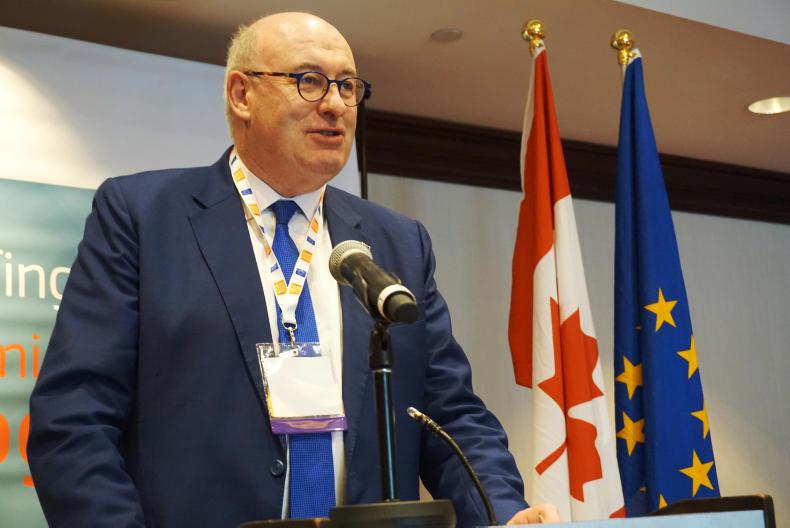Japan’s Prime Minister Shinzo Abe is in Brussels for a summit today, Thursday, where he and European Commission president Jean-Claude Junker are expected to conclude a far-reaching trade deal.
This deal marks something of a new world order following the collapse of the wide-ranging Trans-Pacific Partnership (TPP) deal between the US and 11 countries that border the Pacific Ocean. Similarly, the Trans-Atlantic Trade and Investment Partnership (TTIP) negotiations have gone into cold storage with no likelihood of a trade deal anytime soon between the US and the EU. Of course, the policy of US President Trump is more protectionist “America First” and with the UK departing the EU, it looked like the world was heading into a more protectionist era.
However, this changes with the EU and Japan deal, the second and fourth largest trading blocs in the world. It is seen as positive for both in the aftermath of the failed TPP or stalled TTIP talks and puts the EU and Japan to the forefront of leading global free trade.
What is at stake for farmers?
Trade deals are usually bad news for farmers as they generally mean the EU is giving access to EU markets for agricultural produce from lower-cost regions of the world. However, the deal with Japan is an example of the EU being on the “offensive” for agriculture rather than the usual defensive. That means the EU was chasing access to the Japanese markets for EU agri exports as opposed to trying to resist imports to the EU. Japan is a huge net importer of all proteins with just 12% of its land suitable for agricultural production. It is also one of the most protected agricultural markets in the world and it was this resistance that the EU negotiators had to break down.
That is why European Commissioner for Agriculture and Rural Development Phil Hogan joined the Trade Commissioner Cecilia Malmström in Japan last weekend for a final push on access for EU agriculture. This, along with Japanese requests for access to the EU for cars and car parts, was the final sticking point which some of the detail being carried forward to today’s (Thursday) summit in Brussels for Prime Minister Abe and Commission president Junker aims to resolve. It is expected that the deal has come too far to collapse at the last minute.
Will it mean a new market for agri-food products?
Japan is not a new market for Ireland and has been a substantial buyer of pigmeat, cheese and some beef offal. The UK has an inspection visit this week as part of the process of approval being secured for Scotland and Northern Ireland.
While precise details of quotas and tariff reductions weren’t available ahead of the summit today, it is thought that the now collapsed TPP model for US supplies to Japan influenced the thinking of negotiators. The European Commissioner for Agriculture is delighted with the level of access secured for the EU and the escalating rate of tariff reductions, which are expected to fall to 9% from the current 38.5% on beef over the next 15 years. On offals, the current rate of 21% is expected to be halved very quickly and eliminated over 15 years.
Japan has traditionally operated with a safeguard system where import tariffs are applied when imports are increasing to a level that it is undermining domestic production. It is thought that the EU has secured access for approximately 50,000t of beef outside the safeguard arrangement on the sliding tariff scale. There is thought to be a framework around this that if it isn’t used for a defined period that it lapses and, in that case, there would be full access at the reduced 9% tariff rate, which would put the EU on par with Australia and the US. It is also thought there is a clause that ensures any future trade preference negotiated between Japan and the US and/or Australia would automatically be extended to the EU.
This is one trade deal farmers can embrace with opportunities created across all major commodities. The success achieved in getting EU PGIs recognised will be good news for Scotch beef and lamb once export approval has been granted. Commissioner Hogan has a considerable success with this deal with last weekend’s marathon session in Tokyo key to bridging the gaps. He can savour this success but he now has to prepare for the next battles that lie ahead in the EU budget, CAP reform and Mercosur, where he will be doing the defending.
